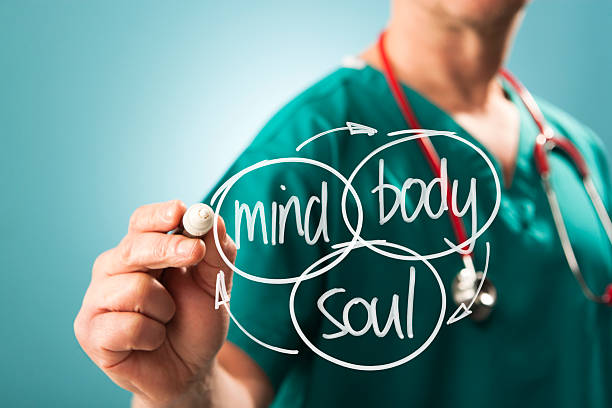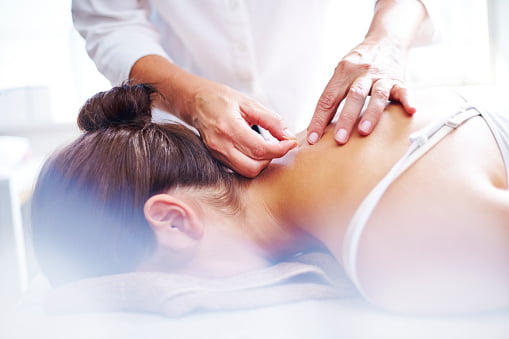People have started getting inclined towards holistic recovery therapies in recent years since they aim to treat addiction by addressing the whole self. The term holistic is widely used in addiction treatment. While traditional treatment combines group therapy, individual therapy, and medication, holistic treatment focuses on alternative approaches like experiential therapies that help patients recognize the connection between their thoughts, body, and behavior. A holistic healing center will assist you in achieving a healthy life by teaching new coping skills.
Holistic addiction treatments help patients process their emotions differently and teach healthy practices that can help prevent relapse. The holistic healing center will pay thorough attention to exercise, nutrition, stress management, and sleep patterns, an important aspect of recovery. These programs are highly effective as they come with a whole-person perspective and address how the addiction has impacted the person, i.e., your physical, mental, emotional, and spiritual health. It is a perfect blend of experiential, traditional, and alternative therapies, which creates an integration between an individual’s body, mind, spirit, and emotion, which helps to determine what combination of approaches will best support recovery.
If you’re looking to address your mental health and addiction issues in a more comprehensive way, you may want to consider visiting holistic rehab centers. Holistic addiction recovery programs help create a spiritual connection so there is a sense of connection with others and the world around, thus giving the person a sense of meaning. Spiritual connection helps a person to stay sober and develop an addiction.
Holistic rehab centers can offer some of the best methods to achieve spirituality, mostly through yoga and meditation. Such programs are also extremely effective in preventing relapse among patients since relapse prevention is vital to holistic addiction recovery.
The stress reduction techniques and coping skills included in holistic rehab programs significantly decrease the risk of relapse. It also helps you find a sense of purpose and fulfillment, which is essential to preventing relapse and living a drug-free life.

Holistic healing centers get at the root cause of addiction
Holistic rehab centers do not just focus on the symptoms of the problem but address the root cause of the problem since many factors influence addiction, such as mental health, trauma history, and genetic components that can lead to substance abuse. But dual diagnosis care and trauma therapy can reveal the cause of an individual’s addiction. Treating the root cause of substance abuse can largely decrease the possibility of relapse as professionals can create the right treatment plan based on the cause of addiction.
It provides individualized treatment.
Remember that the one-size-fits-all approach does not work in addiction treatment. Hence, holistic programs treat patients as individuals.
What is included in a holistic treatment plan?
Yoga
Yoga is an ancient Indian practice that combines breathing with various stretching exercises and postures. It is extremely helpful in reducing stress levels and stress-related symptoms of pain, anxiety, and depression and helps navigate difficult emotions.
Stress is often linked to drug and alcohol addiction as it self-medicates uncomfortable feelings and sensations related to stress. But yoga can help our bodies regulate stress hormones like adrenaline and cortisol, thus lowering perceived stress levels.
Yoga has also been proven to improve mood and brain chemistry by increasing feel-good neurotransmitters like GABA. It helps patients manage stressful experiences, reducing the risk of relapse. Yoga mainly includes movements through different postures, meditation, and breathing in specific sequences, which help center the body and mind in the present moment.
Meditation and mindfulness
This is about being fully present at the moment without feeling overwhelmed by distractions or emotions. The practice may involve seated, moving, walking, or even standing. One of the most popular mindfulness practices is meditation, which encourages the person to focus on their breath, notice thoughts as they arise, and bring the focus back to the breath.
This evokes curiosity about thoughts without judging them. It also reduces stress and improves reactive behaviors, managing cravings, intense emotions, and other triggers. Some programs may also offer meditation practices where you can recognize difficult emotions and urges and tackle them with healthy coping skills.

Fitness therapy
Substance abuse is sometimes fuelled by depression and anxiety symptoms, which can be eased by exercise and fitness therapy. It is a powerful tool for relapse prevention as it boosts feel-good chemicals in the brain. Also, it can immensely help to add structure and routine to our daily schedule, which is extremely important in the initial stages of recovery.
Massage therapy
Massage therapy helps boost mood by improving dopamine and serotonin levels, promoting relaxation, reducing the stress response and levels of the stress hormone cortisol, decreasing pain, and improving sleep. All these factors are especially important for people in their early stages of abstinence from alcohol and drugs, as they may be experiencing physical symptoms of withdrawal.
To conclude
Some holistic rehab centers have a very exclusive approach towards addiction treatment, such as no use of medications, group sessions, etc. The Pouyan method is one such approach that aims at healing the body at a cellular level without using any medicines.
Read Also
- The Role of Ingredients in Your Skincare: What to Look ForSkincare works best when you understand what goes into the products you use daily. Ingredients form the foundation of every formula and determine how the skin reacts over time. Each cream, cleanser, or serum has its own role, determined by its ingredients. Learning what to look for helps you pick products that help skin and… Read more: The Role of Ingredients in Your Skincare: What to Look For
- Your Guide to Finding a Trusted DentistChoosing the right dentist in Sandgate or your area is crucial for maintaining good oral health and achieving a confident smile. With countless dental practices to choose from, patients may find the task daunting. Data from the American Dental Association indicates that there are over 200,000 practicing dentists in the United States, highlighting the importance… Read more: Your Guide to Finding a Trusted Dentist
- Mastery Forge Webinar Platform – Choose Your WebinarWe live in a time when knowledge is literally at your fingertips. You no longer have to go on long courses, wait for free places or adapt to a rigid schedule of classes. All you need is the Internet, a little willingness and you have access to training courses conducted by experts from all over… Read more: Mastery Forge Webinar Platform – Choose Your Webinar
- Transforming Patient Care with Professional Healthcare Transcription ServicesIn today’s fast-paced healthcare environment, the need for precise and timely documentation cannot be overstated. Accurate documentation is not merely an ancillary task; it is a core element of delivering high-quality patient care. The ability to maintain compliance with regulations, enhance operational efficiency, and ensure the integrity of patient records has never been more critical.… Read more: Transforming Patient Care with Professional Healthcare Transcription Services
- Achieving a Defined, Balanced Facial Contour in SingaporeA well-defined jawline and a gently tapered lower face — commonly referred to as a V-shaped face — is a look many people aspire to. In Singapore’s beauty and aesthetic scene, treatments that help refine facial contours have grown in popularity as more individuals seek subtle, natural enhancements that boost confidence and balance facial features.… Read more: Achieving a Defined, Balanced Facial Contour in Singapore






